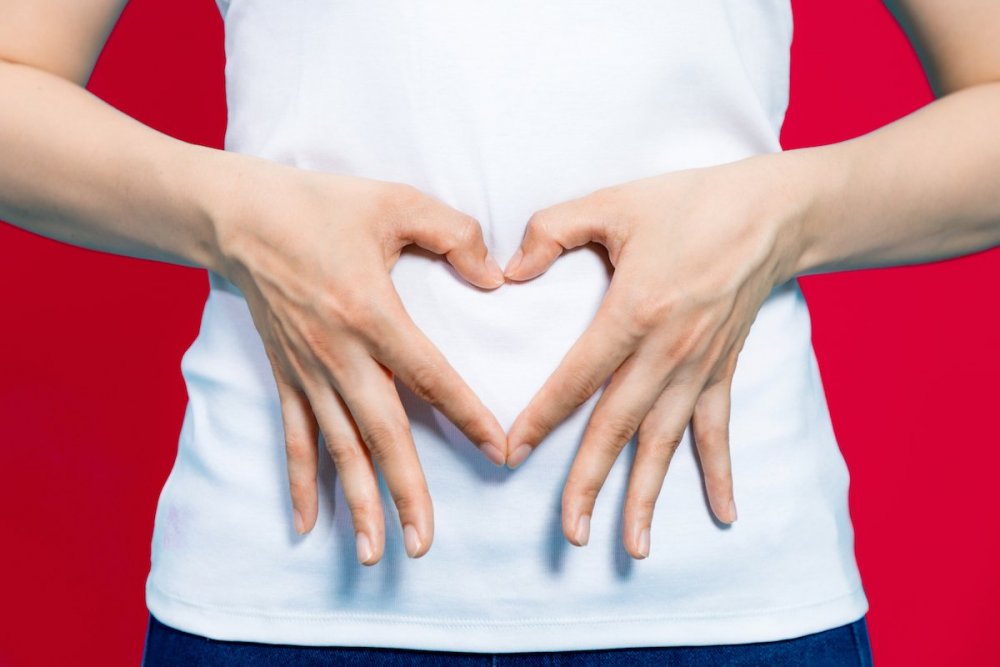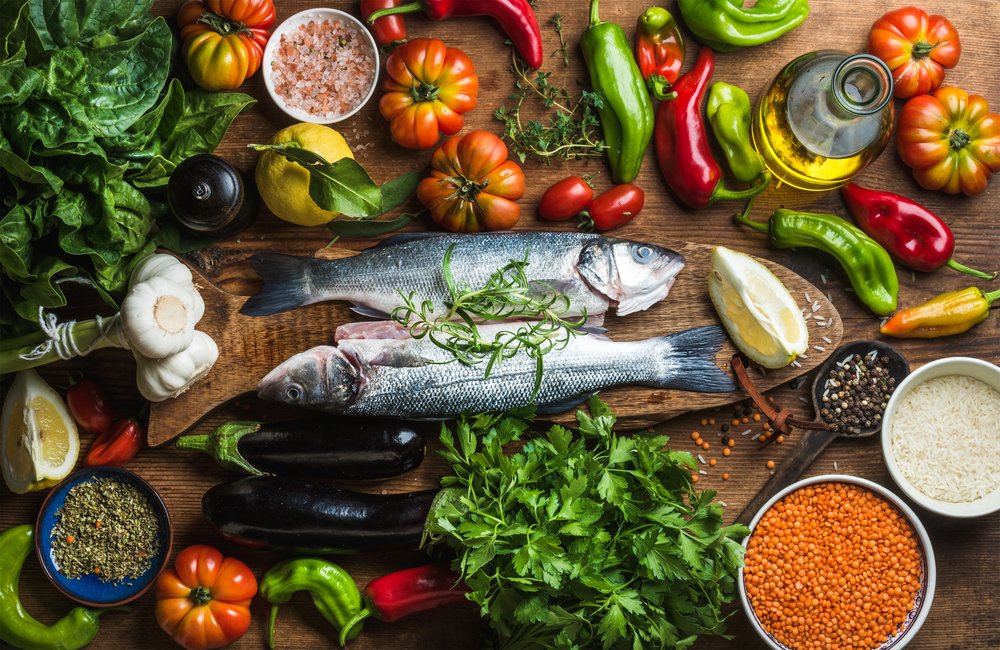The recent discovery of the gut-brain axis has brought a deeper understanding to how digestion and food affects our mood and health. Allison Clark explains the gut-brain axis and offers practical suggestions on how you can improve it – and therefore your overall health.
Ever wonder why you have butterflies when you’re nervous? Or why you feel like you have a knot in your stomach when you’re sad? Or, perhaps, why stress or anxiety trigger digestive problems?
Well, the answer may not be in your head but rather your gut.
What is the gut-brain connection?
Scientists have recently discovered what they call the gut-brain connection or gut-brain axis. This is the two-way communication between the nervous system in our gut (enteric nervous system) and the central nervous system. The gut-brain axis also involves our immune systems, as well as hormones.
The major players in the gut-brain axis are the vagus nerve and the gut microbiome. The vagus nerve is the body’s largest nerve and runs from the brain stem all the way down through the entire digestive system. It regulates not only our digestion, but also hormones produced in the gut. It forms part of the autonomic nervous system that includes the sympathetic (fight or flight response) and parasympathetic (rest and digest) nervous divisions.
Another key aspect of the gut-brain connection is the gut microbiome, which consists of more than 100 trillion microorganisms that live in our intestine. These microorganisms play a major role in various aspects of our health, including digestion, vitamin synthesis and immune system regulation.
This means that while stress, anxiety and depression can influence digestive function – such as how fast we digest food and pain – our gut health can also influence our mood (which explains why we get butterflies in our stomach when we’re nervous or anxious!).
Love your gut: understanding the gut-brain axis
Recent evidence shows that the microorganisms that reside in our intestines regulate the production of various neurotransmitters such as glutamate, gamma aminobutyric acid (GABA), serotonin and dopamine, especially in response to stress and anxiety.
Conversely, stress can reduce the amount of beneficial bacteria we have in our intestines which can negatively affect our health. Interestingly, an estimated 95% of serotonin is produced in our intestines, and certain gut microbes can influence serotonin production in intestinal cells. Some intestinal bacteria can also produce molecules short chain fatty acids (SCFA) that also regulate neurotransmitter synthesis.
RELATED: Happiness hormones – the neurochemicals of happiness
The gut microbiome may also play an important role in brain development and function, certain behaviors like alcohol dependence, as well as sleep, further illustrating the importance of the gut-brain axis.
Mental health and the gut microbiome: the good, the bad and the ugly gut bugs
The recent increase in gut-brain axis research has illustrated some key findings in how our gut microbiome influences our mood.
In an interview with Gut Microbiota For Health, gut microbiome researcher and expert of the gut-brain axis Professor John Cyran stated, “We have more nerve cells in our gut than we do our spinal cord... In a way, what we can say is healthy gut equals healthy brain.”.
In general, the more the merrier – that is the greater number of microbial species that inhabit the intestines, has been associated with better sleep and mood and overall improved health. Additionally, compared to a diverse and balanced gut microbiome, an imbalanced gut microbiota composition that does not contain as many beneficial species, also known as dysbiosis, has been associated with irritable bowel syndrome (IBS), increased stress hormone production, and anxiety.
Furthermore, scientists have also discovered that specific beneficial bacteria can influence neutrotransmitter synthesis. For example, various Lactobacillus and Bifidobacterium strains of bacteria have been found to help produce GABA in humans, which is a calming neurotransmitter. Beneficial bacteria like Clostridiales also produce the anti-inflammatory metabolites SCFA that can influence dopamine, noradrenaline, GABA and serotonin synthesis.
“Another key aspect of the gut-brain axis is the gut microbiome, which consists of more than 100 trillion microorganisms that live in our intestine. These microorganisms play a major role in various aspects of our health.”
Unfortunately, not all bacteria are beneficial. An imbalanced gut microbiome can also produce negative psychological effects such as anxiety and stress. So, it’s no surprise that people who suffer digestive issues such as irritable bowel syndrome (IBS) also experience psychological distress such as anxiety and depression.
For example, some gut bacteria like Lactobacillus reuteri produce histamine, which is a neurotransmitter that can cause anxiety. Some pathogens such as Campylobacter jejuni and Trichuris muris can also cause anxious behavior. The good news is beneficial Lactobacillus and Bifidobacterium bacteria can reduce anxiety.
RELATED: How to heal your gut – 11 ideas to restore belly health
Additionally, inflammation and oxidative stress (i.e. free radicals) can also negatively affect neutrotransmitter synthesis in our guts because intestinal inflammation can contribute to depression.
Food and mood: improving the gut-brain axis through nutrition
Due to the important role the gut-brain axis plays in our physical and mental health, the gut microbiome has become a therapeutic target for psychological conditions. Luckily diet plays a major role in shaping the gut microbiome, which could, in turn, greatly benefit the gut-brain axis.
Recent research has shown certain foods benefit the gut-brain axis including:
1. Probiotics
These are live microorganisms that confer a health benefit for the host when administered in an adequate amount. Common bacteria include Lactobacillus and Bifidobacterium strains. Fermented foods that are naturally high in probiotics include yogurt, keifer, kombucha, miso, sauerkraut and kvass. Specific strains like Lactobacillus acidophilus, Lactobacillus casei and Bifidobacterium bifidum may reduce depression, whereas Bifidobacterium longum R0175 and Lactobacillus helveticus have been shown to decrease anxiety.
2. Prebiotics
Prebiotics are types of fibre that stimulate the growth or activity of beneficial bacteria including Lactobacillus and Bifidobacterium. Plantains, Jerusalem artichokes, onions, asparagus, leeks, apples and chicory are rich in prebiotics and a high prebiotic consumption has been shown to reduce stress-related disorders.
RELATED: The 15 best prebiotics to include in your diet
3. Anti-inflammatory diet
Since systemic and gut inflammation can trigger mood issues, following an anti-inflammatory diet can be beneficial both for your gut and brain. A Western diet, which is high in inflammatory and processed foods, fats, red meat and refined sugar, has been shown to cause a less balanced and diverse gut microbiome and has been associated with depression and anxiety.
“A critical way to improve your gut-brain axis communication is by stimulating your vagal nerve and improving what’s called your vagal tone.”
On the other hand, high fibre (at least 30g a day) and Mediterranean diets have been shown to decrease inflammation and increase the amount of beneficial microbes in our guts.
4. Omega-3 fatty acids
Omega-3 fatty acids such as EPA and DHA have been found to improve the gut microbiome and major depressive disorders. Omega-3 fatty acids are naturally found in:
- Cold-water fish, including tuna, salmon, mackerel, herring and sardines).
- Plant oils (canola oil, flaxseed oil and soybean oil).
-
Nuts and seeds (flaxseed, chia seeds, walnuts).
A Mediterranean diet is anti-inflammatory shutterstock/Foxys Forest Manufacture
5. Polyphenols
Polyphenols are anti-inflammatory and can feed beneficial bacteria which enables them to survive in the intestines. Cacao, green tea, coffee, blueberries and grape juice all contain polyphenols and have been shown to benefit the gut microbiome, as well as reduce stress and anxiety.
RELATED: 8 good mood foods to improve mental health and happiness
6. Vitamins A, D and B vitamins
Vitamins A, D and B vitamins are crucial for mental health and are influenced by the gut microbiome. For example, beneficial bacteria synthesize various B vitamins such as B12, which plays a major role in neurological function and cognition. On the other hand, vitamin D deficiency has been associated with neuroimmune diseases such as Alzheimer’s, autism, and multiple sclerosis. Moreover, vitamin D plays an important role in overall gut and immune function.
Lifestyle changes to improve the gut-brain axis
A critical way to improve your gut-brain axis communication is by stimulating your vagal nerve and improving what’s called your vagal tone, which is measured by your heart rate variability. A higher vagal tone is associated with a higher heart rate variability and resilience to stress. Some stress management techniques that improve vagal tone include:
- Gargling
- Singing and chanting
- Meditation
- Yoga
- Slow, deep breathing into your belly
- Laughter
- Cold showers (10ºC/ 50ºF)
- Moderate exercise, especially walking or running in nature
- Massage
- Acupuncture
The gut-brain axis: conclusion
In our modern world we’ve been taught to fear microbes and germs, but in reality they play a vital role in our physical and mental health. The abuse of antibiotics, hand sanitizers and disinfecting agents depletes our microbiome and negatively affects our healing.
While it might seem scary to think we are at the mercy of trillions of microbes that are in charge of our mood and many aspects of our health, it’s also important to understand that our gut bugs are our friends and that we’ve co-evolved with them.
So, food really does affect our mood and emerging gut microbiome and gut-brain axis research is paving the way for innovative treatments for mental health illnesses. Although studies are still in their infancy, eating an anti-inflammatory diet, managing stress and exposure to a variety of microbes could be one recipe for good mental health. •
Main image: shutterstock/metamorworks
happiness.com | The fine art of being: learn, practise, share
Are you a happiness.com member? Sign up for free now to enjoy:
■ our happiness magazine with practical life tips
■ support others in our happiness forum
Written by Allison Clark
 Allison Clark is a freelance writer and nutritionist and has written various peer review papers about the role the gut microbiota plays in health, disease and endurance exercise performance. Allison is passionate about the role diet and the gut microbiota play in health and disease.
Allison Clark is a freelance writer and nutritionist and has written various peer review papers about the role the gut microbiota plays in health, disease and endurance exercise performance. Allison is passionate about the role diet and the gut microbiota play in health and disease.



Join the conversation
You are posting as a guest. If you have an account, sign in now to post with your account.
There are no comments to display.